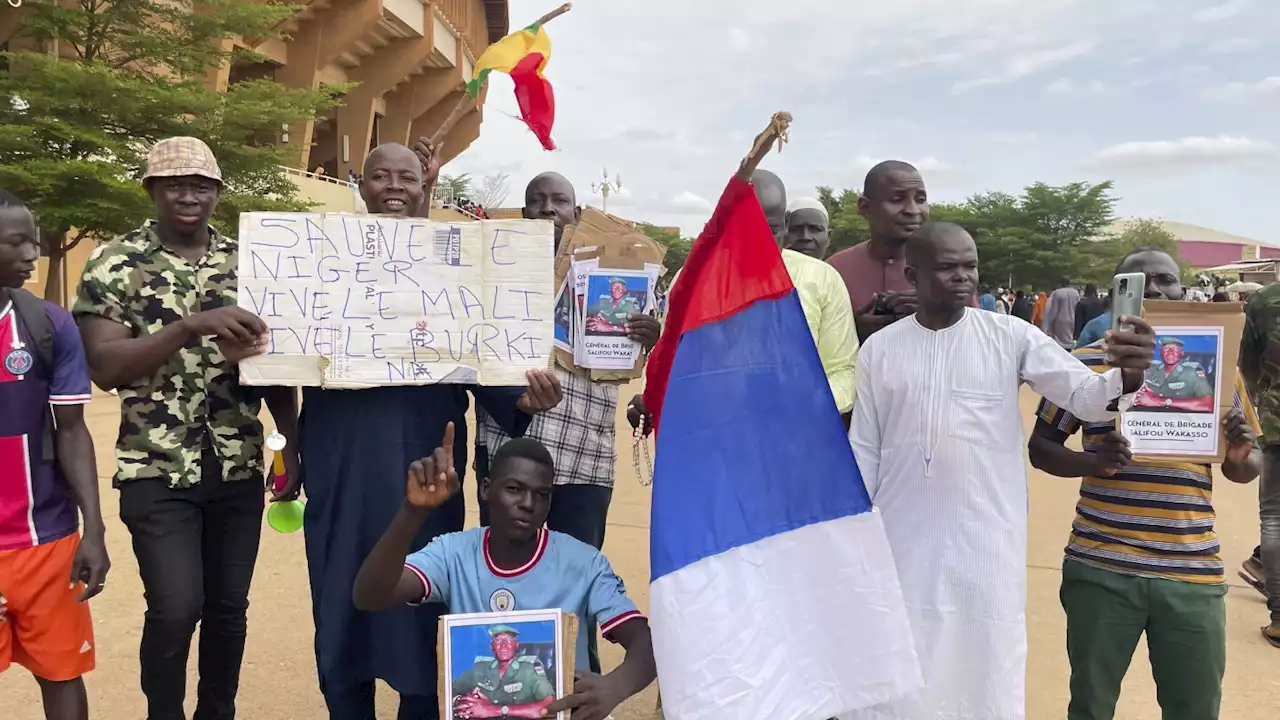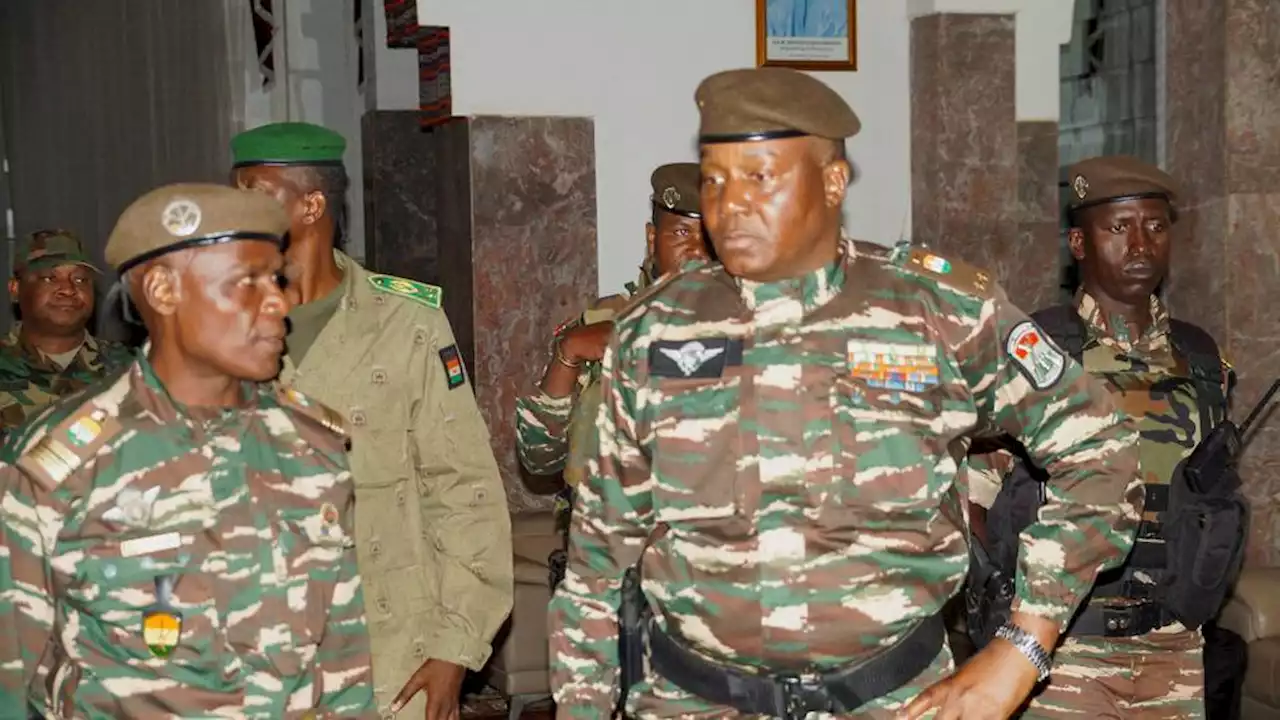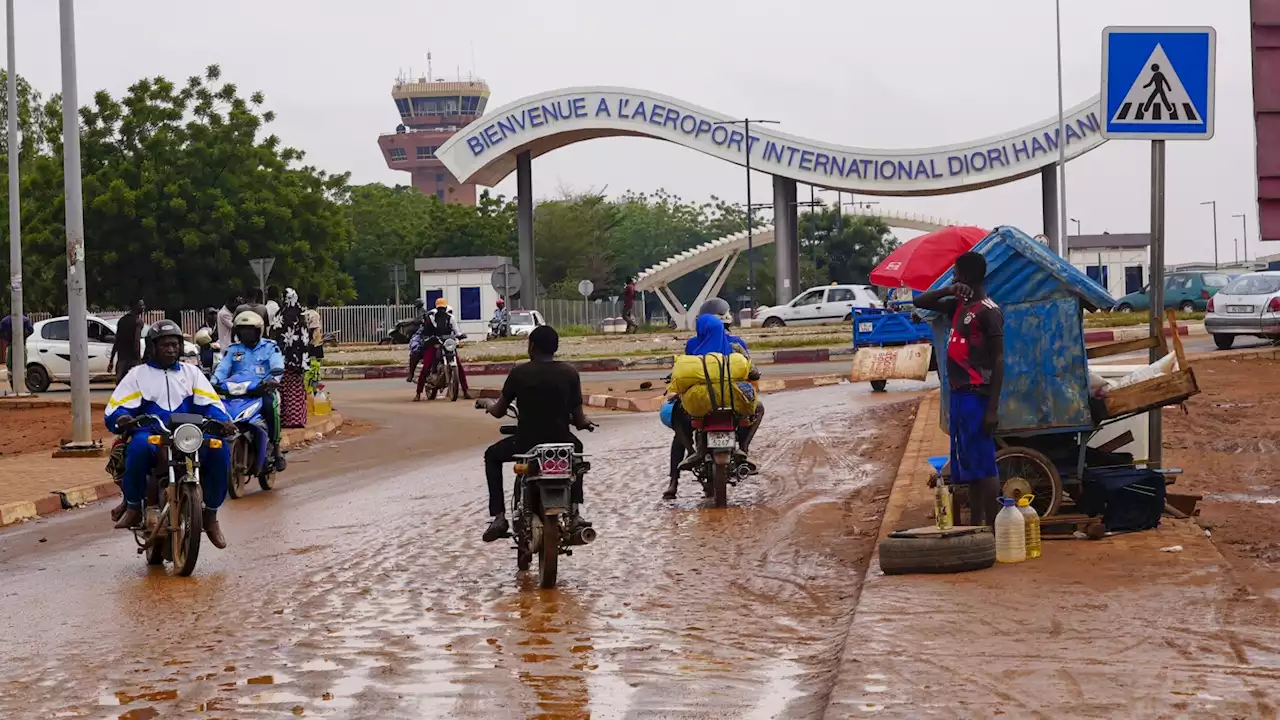The regional ECOWAS bloc said it had directed the deployment of a 'standby force' to restore democracy in Niger after the coup. Officials gave no details about the makeup, location or proposed date of deployment for any military intervention force.
The regional ECOWAS bloc said Thursday it had directed the deployment of a “standby force” to restore democracy in Niger after the coup. However, it gave no details about the make-up, location and proposed date of deployment for any military intervention force.Asked for clarification, the president of the ECOWAS commission, Omar Alieu Touray, said he could only reaffirm the decisions by “the military authorities in the subregion to deploy a standby force of the community.
“It is crucial that we prioritize diplomatic negotiations and dialogue as the bedrock of our approach,” said Nigerian President Bola Ahmed Tinubu, who currently chairs the bloc, said before the closed part of the meeting. On Wednesday, a Nigerian delegation led by the former Emir of Kano, Khalifa Muhammad Sanusi, met the junta’s leader, Gen. Abdourahmane Tchiani. The former emir was one of few people allowed to meet Tchiani.to both Tchiani and Bazoum. A separate delegation comprised of ECOWAS, the United Nations and the African Union was barred from coming at all.
The main parties’ positions are dangerously far apart, according to the International Crisis Group, a think tank, which said that if dialogue is going to succeed, each side is going to have to make concessions, which they’ve so far refused to do. Tactics include using social media to spread rumors about Wagner’s upcoming arrival in Niger and employing fake accounts to mobilize demonstrations and spread false narratives, Osborn said. “Their objective is not to support the junta or an alternative political approach but to sow discord, create chaos, destabilize,” she said.
United States Latest News, United States Headlines
Similar News:You can also read news stories similar to this one that we have collected from other news sources.
 Niger junta rejects diplomatic mission, resists pressure to negotiateNiger's junta refuses the latest diplomatic mission from West African countries and resists pressure from the US and UN to come to the negotiating table. ECOWAS prepares for a summit to discuss the standoff and the possibility of military intervention.
Niger junta rejects diplomatic mission, resists pressure to negotiateNiger's junta refuses the latest diplomatic mission from West African countries and resists pressure from the US and UN to come to the negotiating table. ECOWAS prepares for a summit to discuss the standoff and the possibility of military intervention.
Read more »
 Niger's Military Junta Digs In with Cabinet Appointments and Rejects TalksAs Niger's military junta enters its second week in power, they are solidifying their control by appointing a government and refusing to engage in negotiations. This move is seen as an effort to establish their authority and demonstrate their commitment to governing the country. Additionally, two rival factions are vying for power, with one leader currently detained and remaining silent. The junta recently announced the appointment of Ali Mahaman Lamine Zeine, a former minister of economy and finance, as the prime minister. Zeine previously served in government until being ousted by a military coup in 2010 and later worked at the African Development Bank.
Niger's Military Junta Digs In with Cabinet Appointments and Rejects TalksAs Niger's military junta enters its second week in power, they are solidifying their control by appointing a government and refusing to engage in negotiations. This move is seen as an effort to establish their authority and demonstrate their commitment to governing the country. Additionally, two rival factions are vying for power, with one leader currently detained and remaining silent. The junta recently announced the appointment of Ali Mahaman Lamine Zeine, a former minister of economy and finance, as the prime minister. Zeine previously served in government until being ousted by a military coup in 2010 and later worked at the African Development Bank.
Read more »
 Niger junta meets Nigeria envoys ahead of summit with regional leadersThe United States is greatly worried about the safety of Niger's ousted president Mohamed Bazoum, the State Department said after Bazoum's party said he and his family were being detained under ‘cruel’ and ‘inhumane’ conditions
Niger junta meets Nigeria envoys ahead of summit with regional leadersThe United States is greatly worried about the safety of Niger's ousted president Mohamed Bazoum, the State Department said after Bazoum's party said he and his family were being detained under ‘cruel’ and ‘inhumane’ conditions
Read more »
 Niger coup leaders announce new govt as ECOWAS summit discusses next stepsThe military leaders in Niger, who seized power in a coup last month, announce the formation of a new government, according to a decree read out on national television
Niger coup leaders announce new govt as ECOWAS summit discusses next stepsThe military leaders in Niger, who seized power in a coup last month, announce the formation of a new government, according to a decree read out on national television
Read more »
 US has 'difficult' conversations with Niger's coup leadersThe United States has now had 'direct contact' with Niger's junta leaders, but the conversations have yet to substantially move the needle as the West African nation faces an apparent coup, U.S. officials said.
US has 'difficult' conversations with Niger's coup leadersThe United States has now had 'direct contact' with Niger's junta leaders, but the conversations have yet to substantially move the needle as the West African nation faces an apparent coup, U.S. officials said.
Read more »
 Sanctions Imposed on Niger Following CoupNiger is facing a series of sanctions from its allies after the July 26 coup, which could have serious economic consequences for the country. These sanctions may impact debt repayments, development projects, and governance. As the world's seventh-largest producer of uranium, Niger's economy heavily relies on this radioactive metal used for nuclear energy and cancer treatment.
Sanctions Imposed on Niger Following CoupNiger is facing a series of sanctions from its allies after the July 26 coup, which could have serious economic consequences for the country. These sanctions may impact debt repayments, development projects, and governance. As the world's seventh-largest producer of uranium, Niger's economy heavily relies on this radioactive metal used for nuclear energy and cancer treatment.
Read more »
